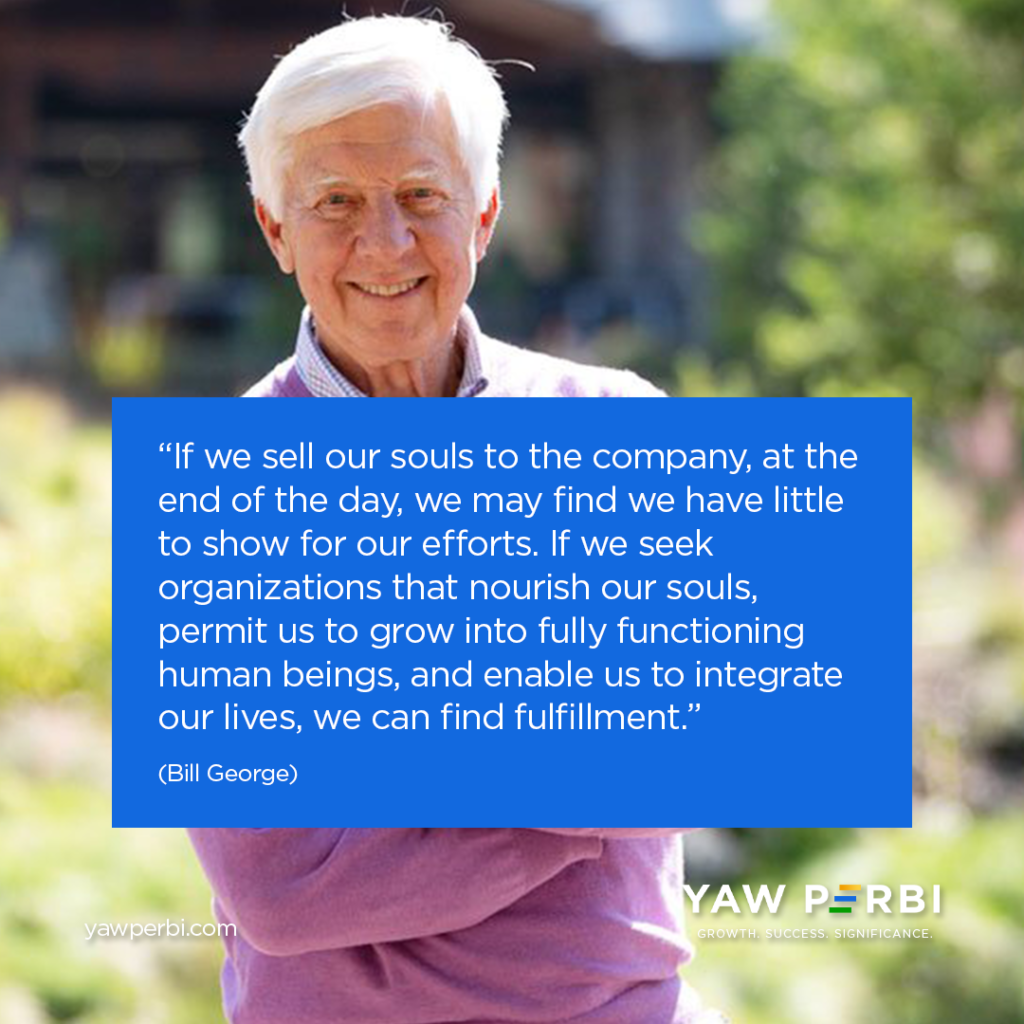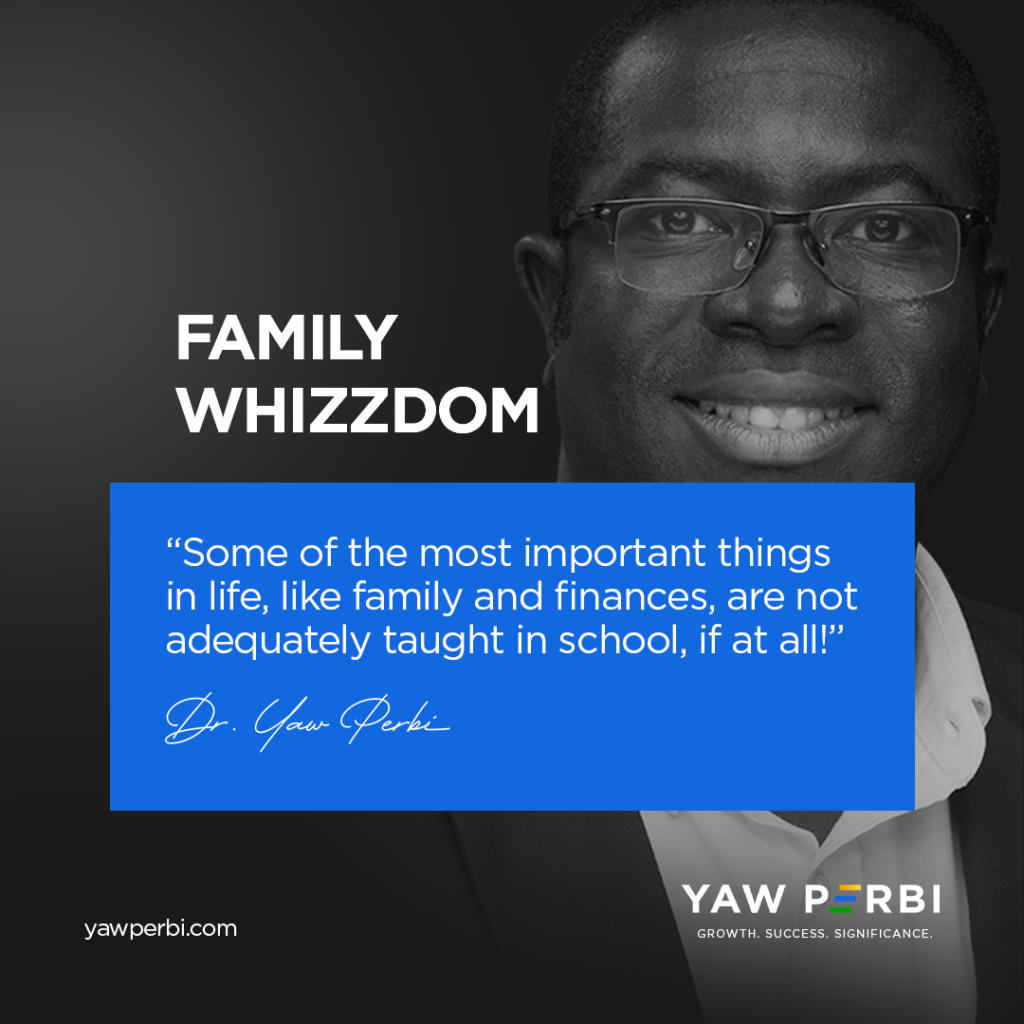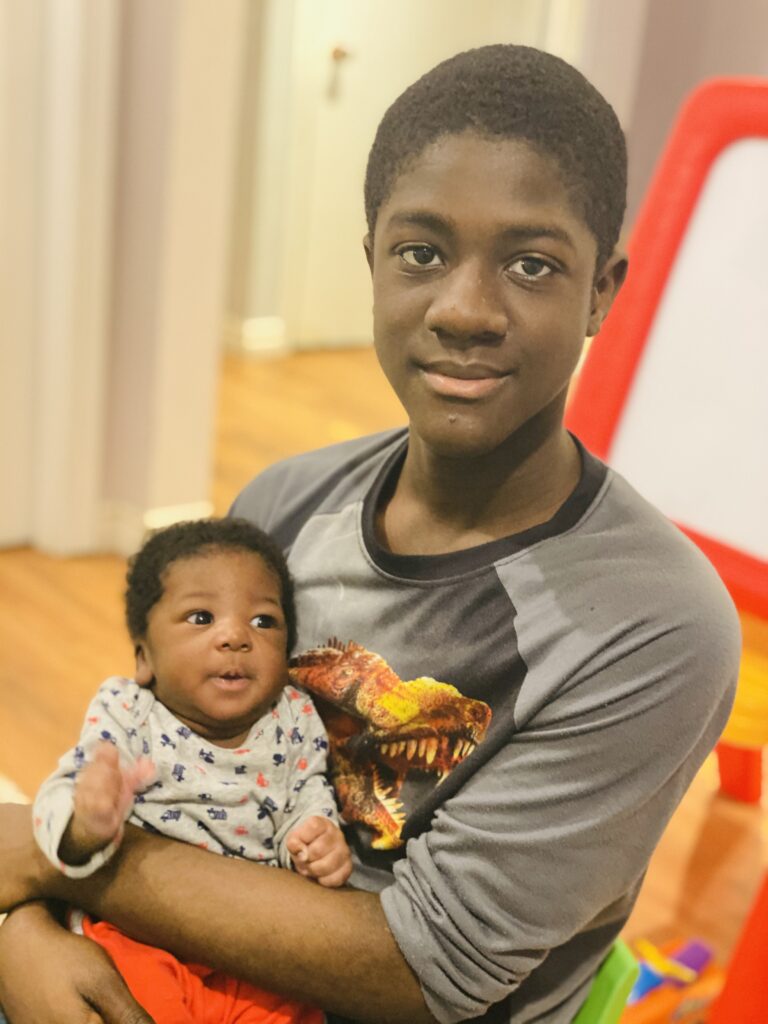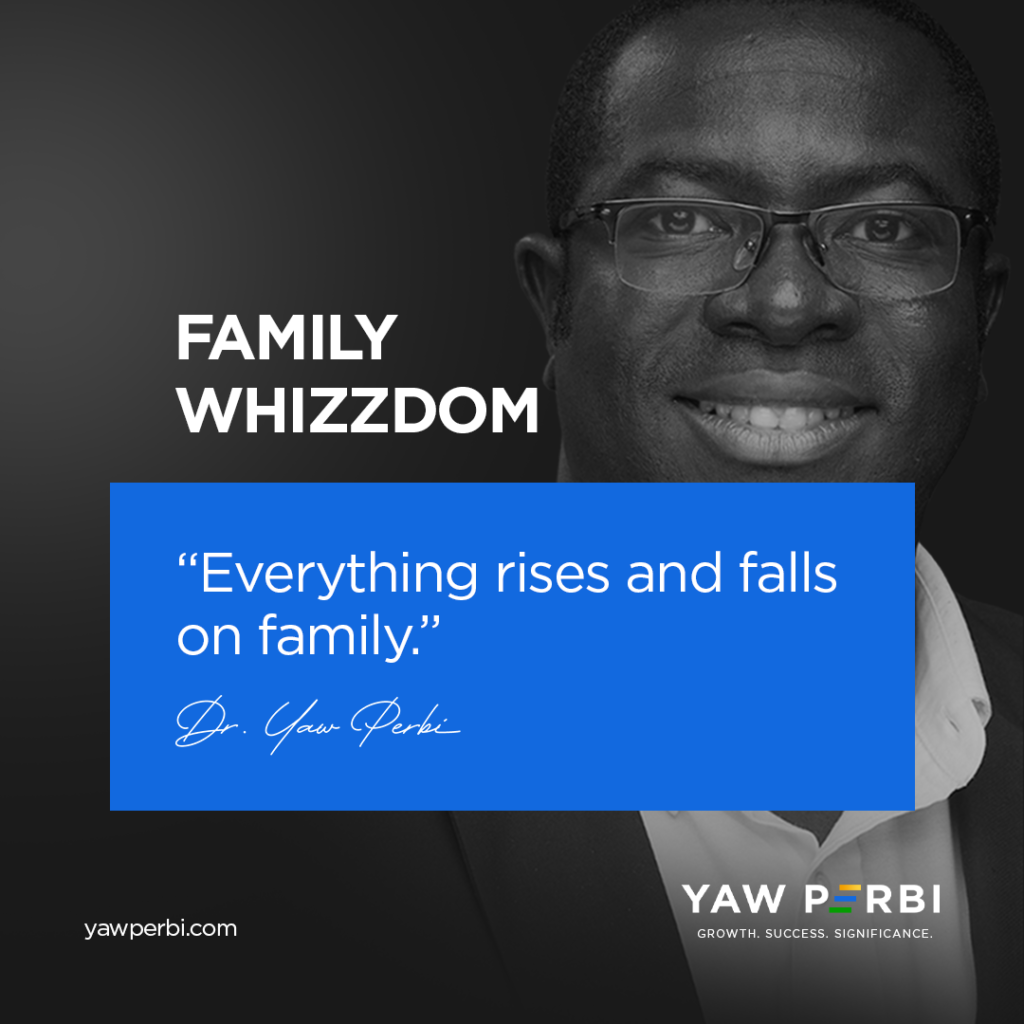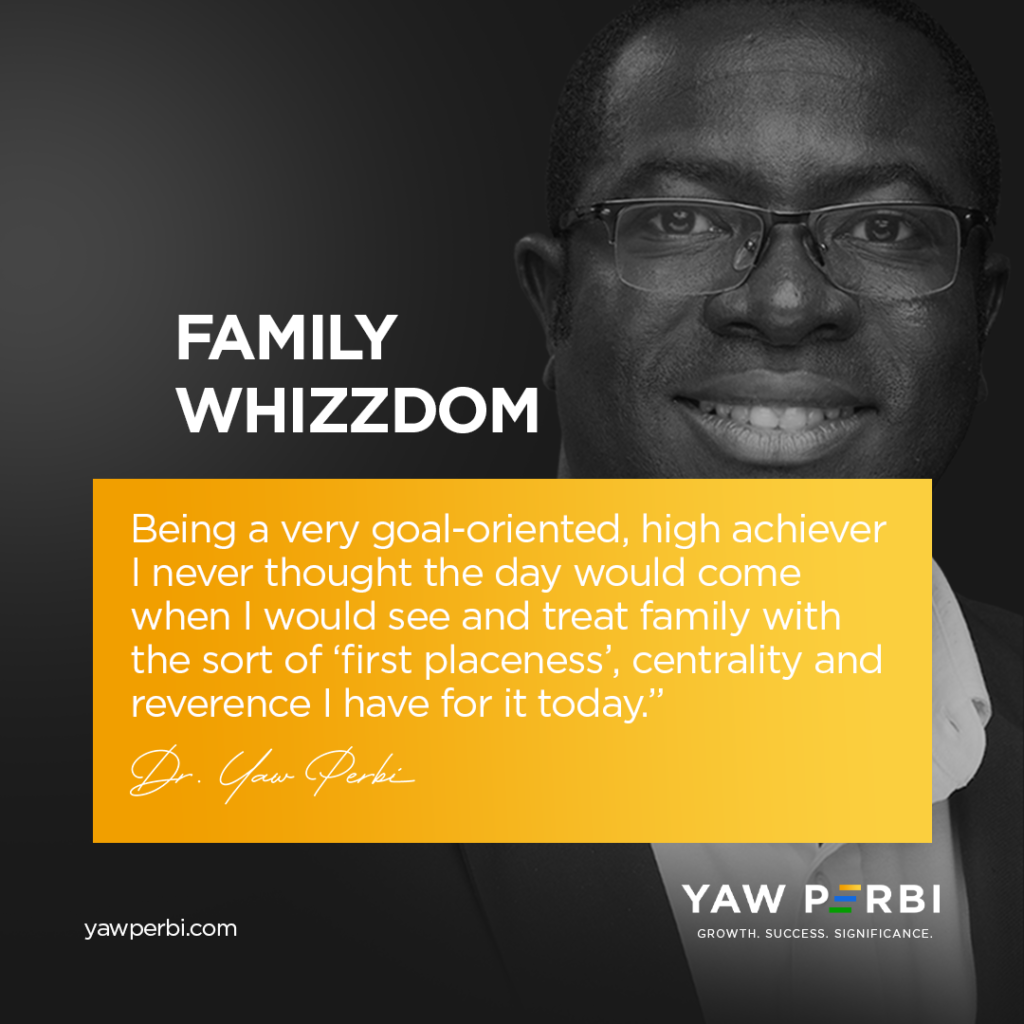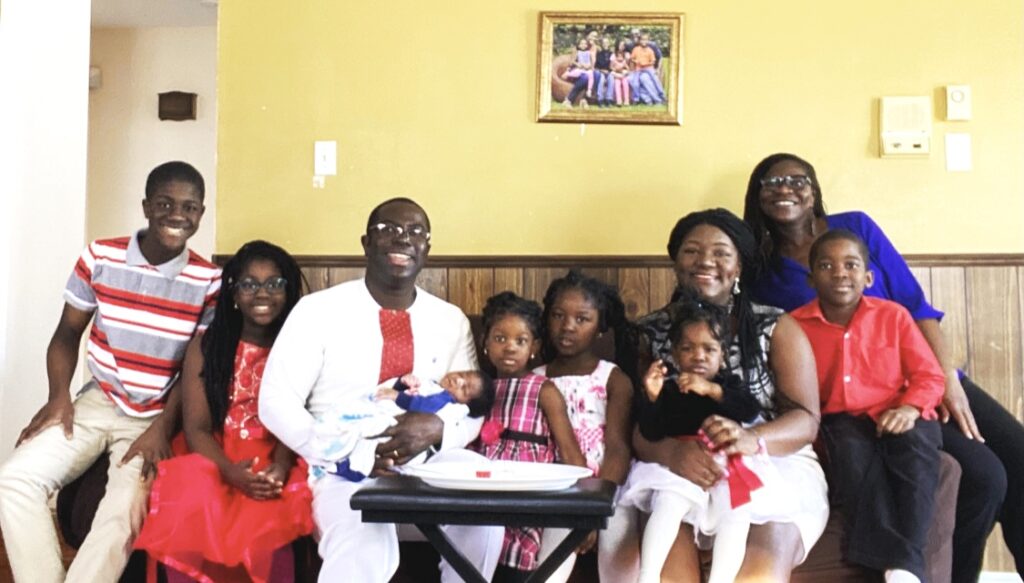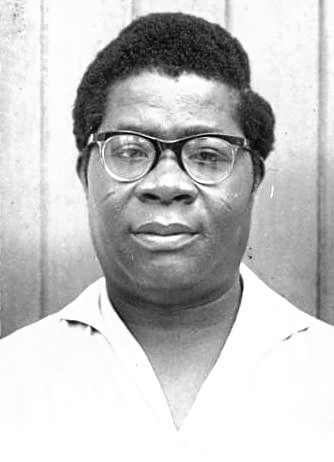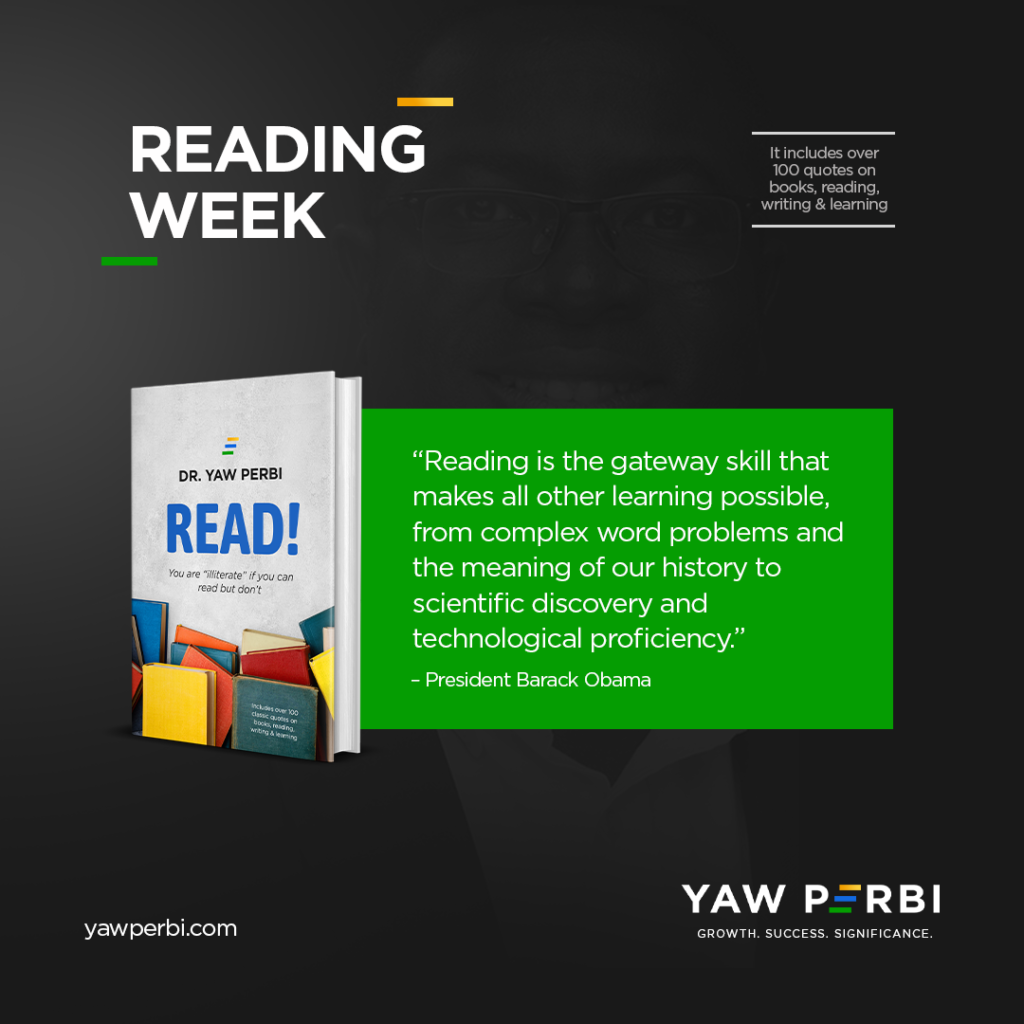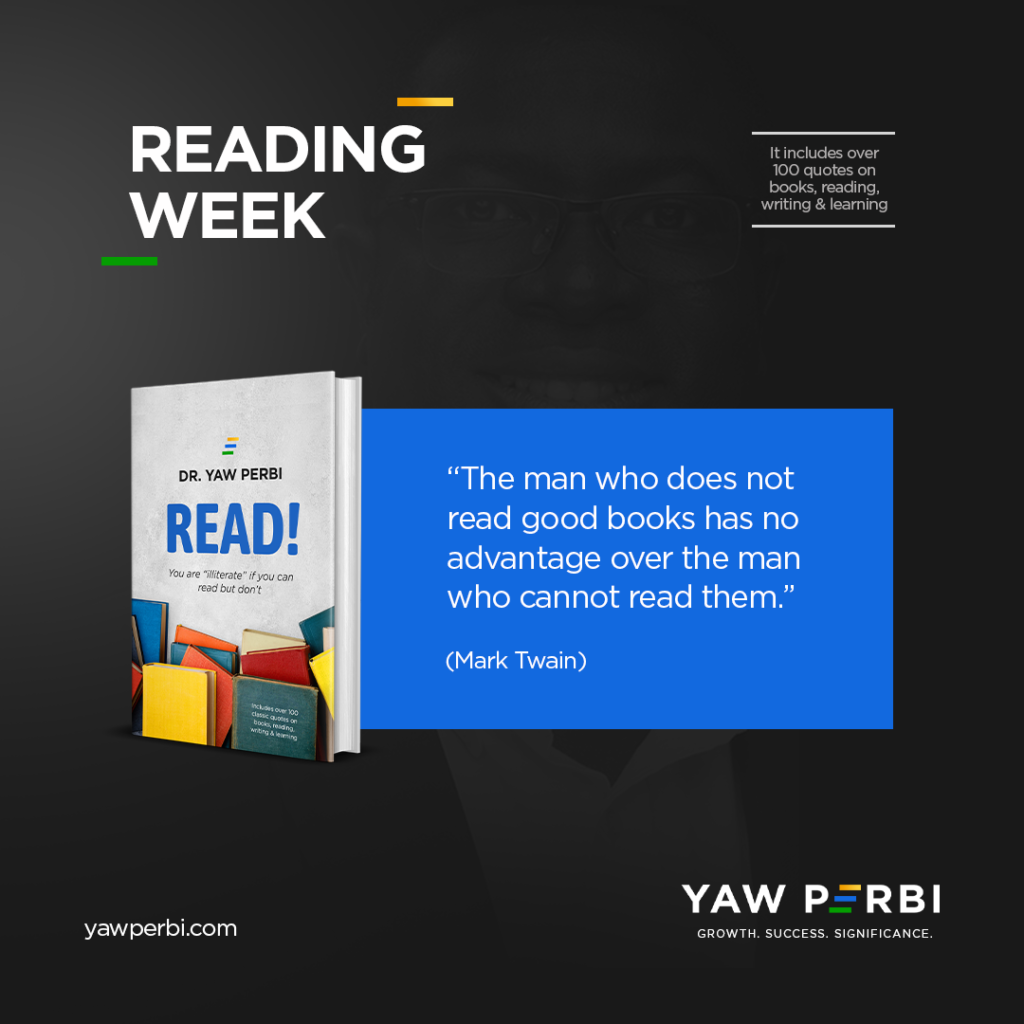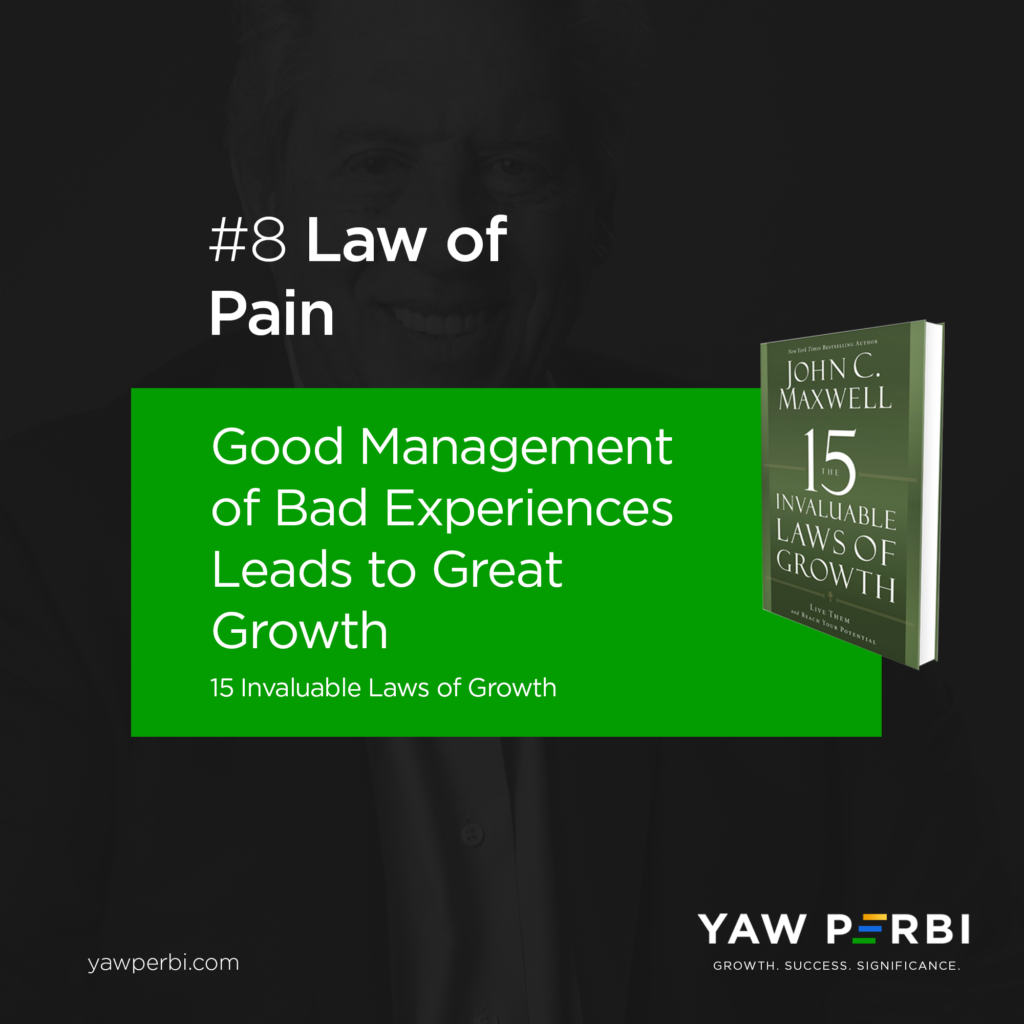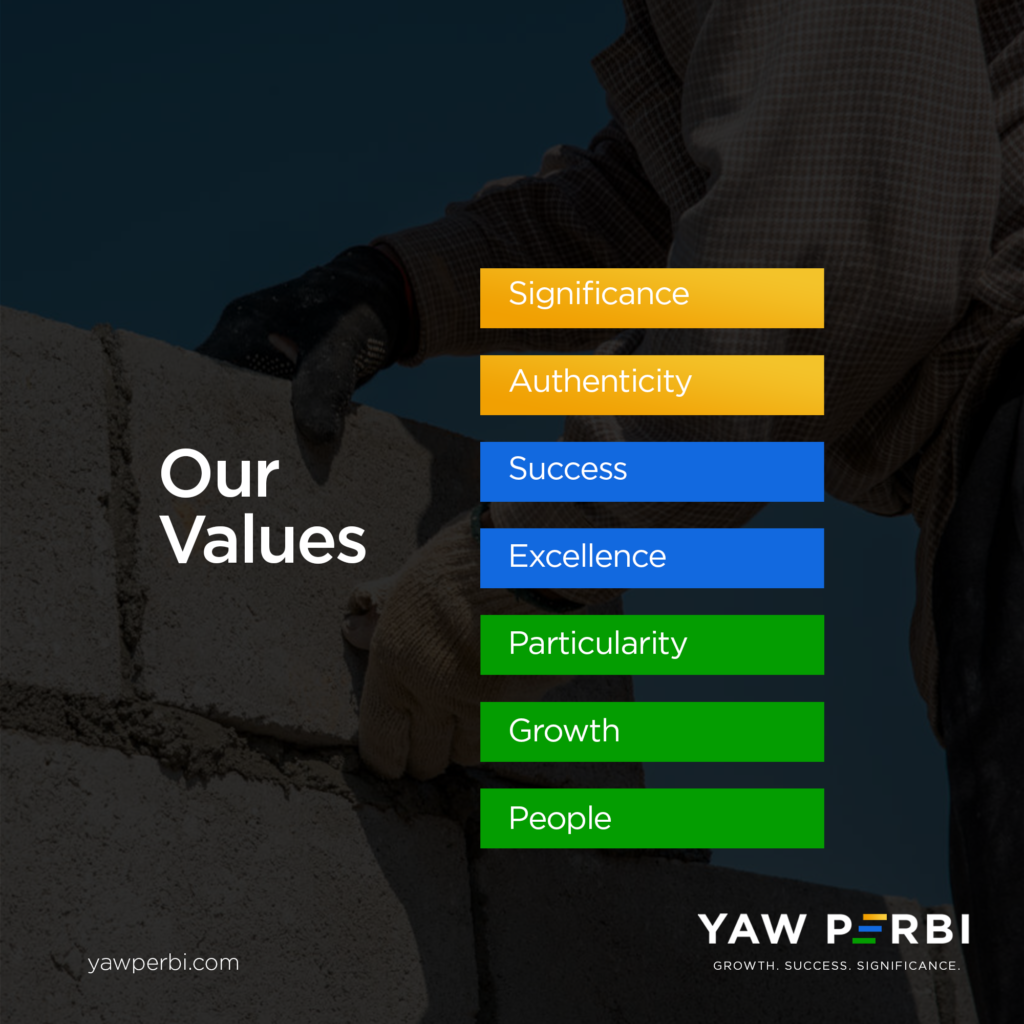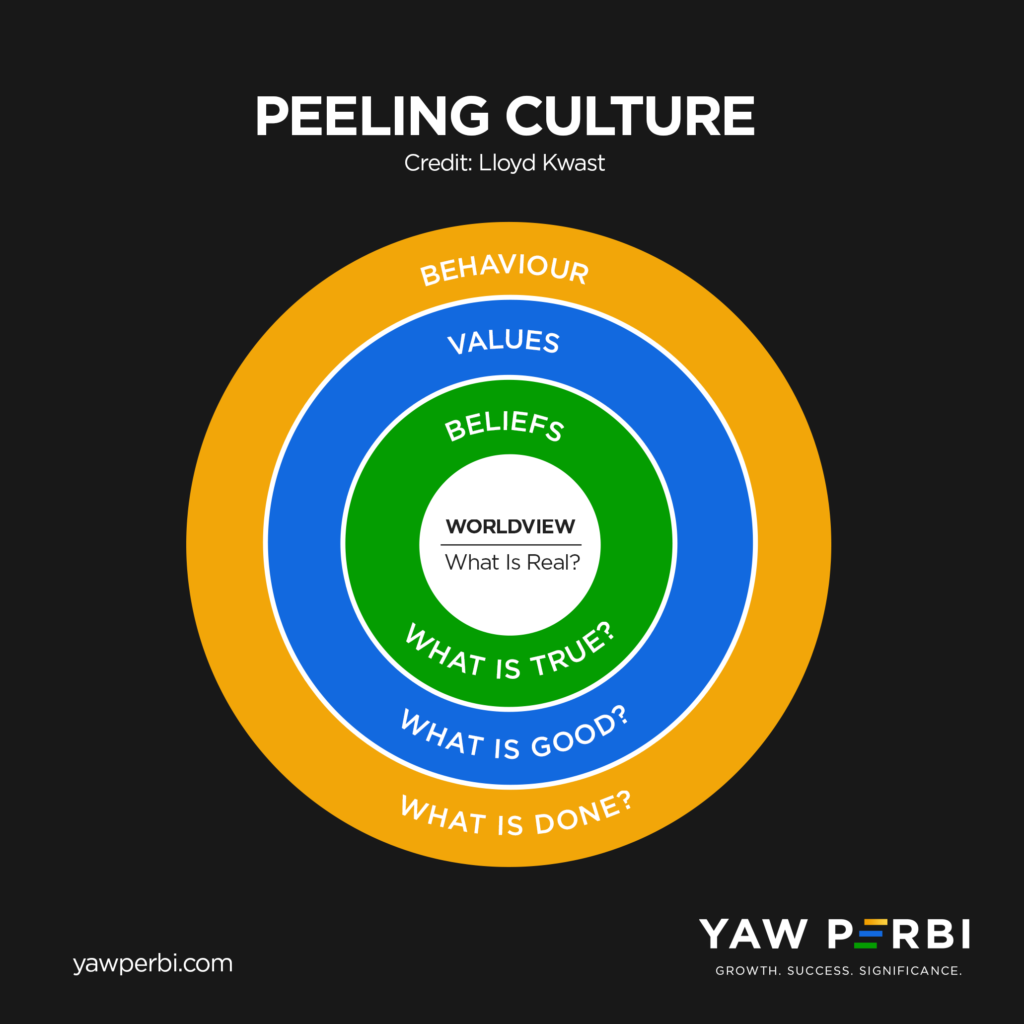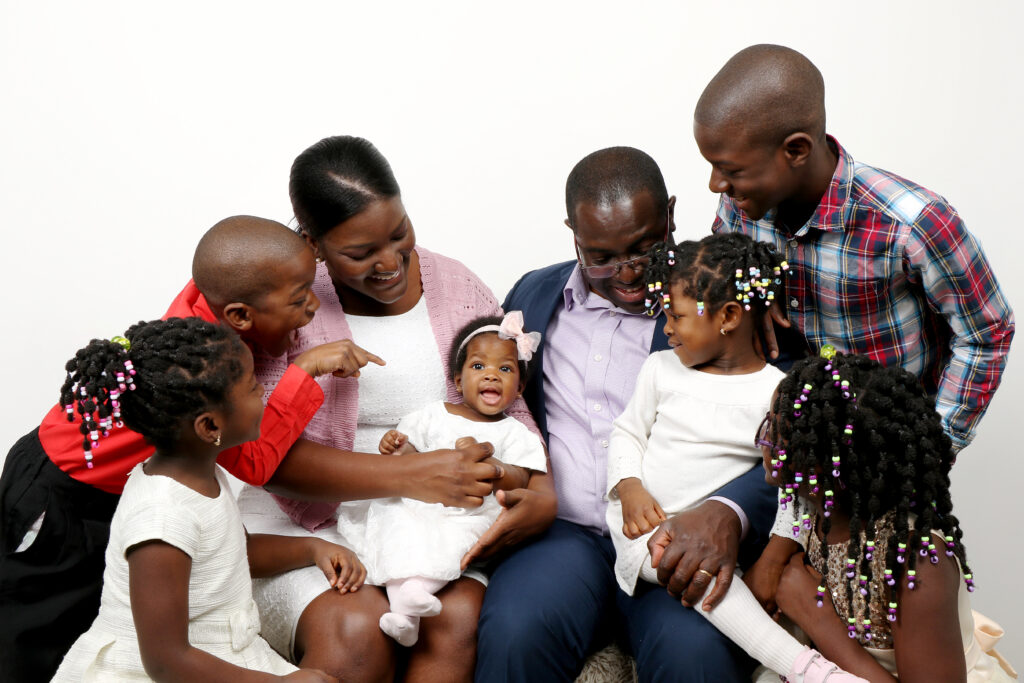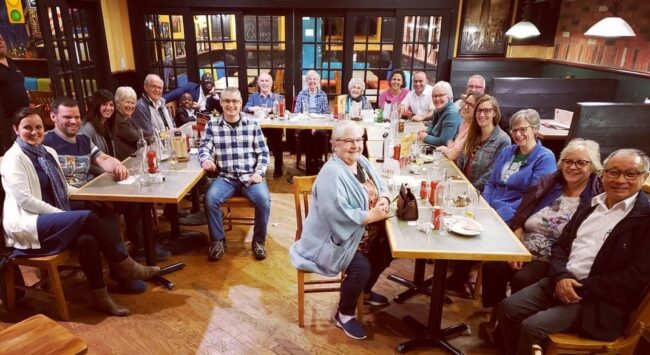
Inspiring Practical Examples of the Integrated Life
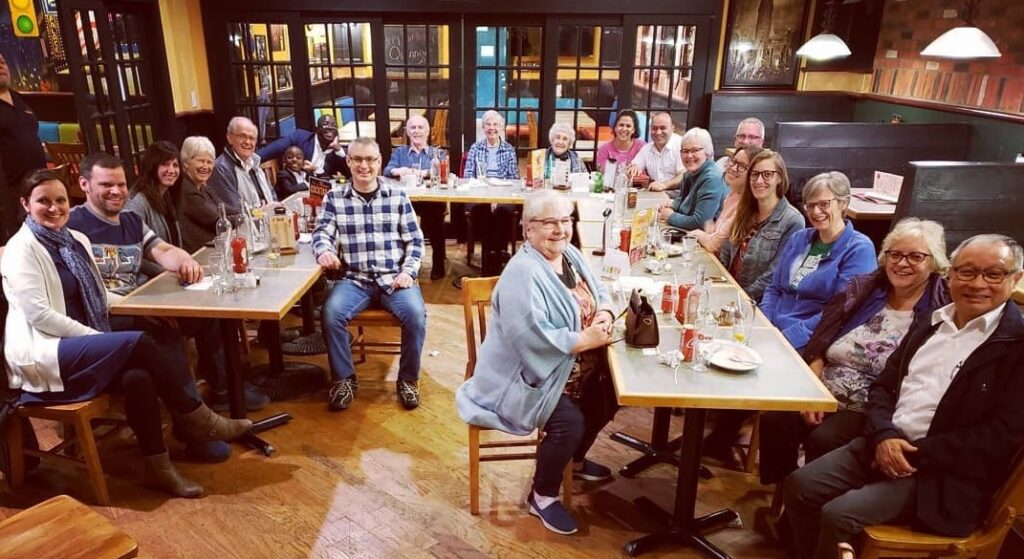
Dinner with the organizing team of an annual conference in Halifax, Nova Scotia (Canada) at which I was a plenary speaker. If you look closely at the back left you will find my then seven-year old son and I. We did the 2,500km trip by road together.
After my last blog on Why I strive for work-life integration and not work/life balance, some got it and said, “important distinction.” Others thought it was just semantics, just a different choice of words but saying the same thing. I beg to differ.
Here’s another attempt to distinguish one from the other: work/life balance (apart from seeming to pit work against life) is the attempt to distribute time, energy and other resources equitably to all four buckets of life to ‘tick all the boxes’. On the other hand, work-life integration is radically different because it harnesses the power of all four buckets, making other buckets better by the power of other buckets. And it is living in such a way that one doesn’t have to hide the other buckets (say, on LinkedIn), pretend they don’t exist or be different things to different people in the different buckets. I’m quite certain a few poignant examples below may make the distinction clearer.
FACEBOOK AND FAMILY
Who doesn’t know about FaceBook and its 2.7 billion users. That number is the combined population of China and India, the two most populous nations in the world. 2.7 billion is more than twice the population of the entire continent of Africa! I was fascinated to learn that as founder/CEO, one of Mark Zuckerberg’s attempt at the integrated life in Facebook’s early days was to host FaceBook strategy sessions at his home on Monday evenings. And for Facebook’s COO Sheryl Sandberg, instead of missing dinner with her family, she would bring her children into the office. Here’s her testimony: “Facebook is incredibly family friendly, so my children were in heaven, entranced by pizza, endless candy, and the huge pile of LEGOs the engineers shared with young visitors. It made me happy my kids got to now my colleagues and vice versa” (George 2015, 173). I don’t know everything about FaceBook’s corporate culture, but these right here are great examples of the integrated life at FaceBook.
I’m proud of Databank in Ghana that has created a nursery in the workplace for nursing mothers as well as a quiet time room for staff to go and nourish their spiritual lives, especially after rushing from home at dawn in order to beat the crazy Accra traffic. These are laudable examples of the integrated life in corporate circles.
PERBI PRIDE
I love lions. I call my children cubs; not kids, hence we are the Perbi Pride. Last week, I handed over to the next CEO of ISMCanada after being at this role for eight years. One of the things I recalled at the handing over ceremony (and nearly everyone remembered) is how not long after I took the role I travelled almost the entire stretch of Canada (the second widest country on earth!) to get to personally know the staff and listen for the pertinent issues from the ground. What I haven’t told you yet is that as a family we decided to integrate our lives with my new work by making this a fun family trip. We rented a minivan and spent 30 days travelling from Montreal (on the east coast) to Victoria (beyond Vancouver) in the west. It was beautiful to see the different types of Canadian landscape and wildlife. Because our children our homeschooled, such opportunities are precious as ‘all of life is school.’ By the time we got back home we had clocked 13,000km and had enough geography, history, sociology etc. to last a lifetime! That is one of the best examples of the integrated life we’ve ever had as a family. Family did not get in the way of work or vice versa. We made both feed off each other and were the richer for it.
Over the last couple of years, I have adopted a tradition of travelling with one of the older four children. Just one, to make them feel special and have a one-on-one time with daddy. Don’t forget these are work trips for me and fun trips for them. After doing a Philadelphia and Washington DC road trip with our then four-year old she insisted upon returning home that “I’m Daddy’s travel buddy’ much to the chagrin of the others. I’ve been far from perfect in integrating family and work but I knew we were doing something right when my children got so used to the ISMCanada world that one day our then seven-year old son asked, “Will I become president of ISMCanada when I grow up?” Almost as if it were a family inheritance.
I’ve always worked from home over the last 8 years as CEO (or from an airport/airplane)–way before the rest of the world was forced to by the Covid-19 pandemic. Working from home and homing from work has its pros and cons but it certainly has helped more than harmed my work-life integration.
IMPACTING THE WORLD FROM WITHIN–‘AN INSIDE JOB’
In an article posted on the Harvard Business Review, author Stew Friedman rightly said that the most impactful leaders find ways “to integrate the different parts of their lives to reinforce and enhance each other.” Everywhere he looked he found successful individuals who used who they were as a person to influence how and why they worked. From Facebook COO Sheryl Sandberg (as I already shared above) through Michelle Obama to rock icon Bruce Springsteen, many influential people channel what made them a powerful person into creating a powerful product, service or project.
Take Michelle Obama, the 44th First Lady of the United States, for example. Michelle considers her daughters to be her first priority, even if this stance vexes those who would have her do more in seeking broader political and cultural change. However as Friedman rightly observes, in making sure her own children were receiving the most nutritious food possible, she began to advocate for better nutrition through the national initiative Let’s Move!. Her policies have won national and global acclaim.
One of the most impactful social enterprises in Ghana right now is the PerbiCubs Library Services, reaching 2,000 children in 200 schools. It might interest you to know that this did not start out as some mega altruistic attempt to ‘change the world’ through getting every child reading but out of our own family’s need for good, well-curated, reading level-appropriate books upon a long stay in Ghana. Whether it’s the Obamas or the Perbis, we’re running this for ourselves–we only get to scale and share with the rest of the world. If nobody signed on, we would still do it. It’s not just a job ‘out there’, it’s an ‘inside job,’ so-to-speak.
RUNNING MY FAMILY LIKE A CORPORATION
I’ve had partners complain about how their spouse is great at XYZ in the corporate world but doesn’t show even an iota of that competence or skill at home. There are those who might argue that they use ‘all of it’ out there and just want to chill and relax when they get home. While that might make some degree of sense, is it not inauthentic that who we are out there is different from who are at home? If you really believe in the power of vision and mission statements and values in your corporate world, for example, how come you haven’t couched one for your own family?
I’m learning to run my family like a corporation, in the sense of applying the things that have made organizations I’ve run succeed. Why not? Wherever two or three come together, you have an organization! I’m sure you can relate to how some of the most treasured members of your community, say church, actually are so because they bring their corporate skills to bear on the communal organization? On the flip side, I’ve also been the beneficiary of running businesses like family and seeing co-workers go over and beyond their job description and their contractual call of duty. The integrated life is the way to go.
CHOOSE INTEGRATION TODAY
“When you give your whole self to the moment, you not only benefit personally, but it dramatically impacts your business as well.” So says my mentor Bill George. The work-rest of life thing doesn’t have to be a zero sum game. Bill is right about how “Many leaders are reluctant to combine their work and family lives, but bringing the two together can lead to more productive and fulfilling lives, both personally and professionally” (173). I have seen and testify that it takes being open-minded about this work-life integration notion, hard work, creativity, experimentation, patience, much discomfort and many failures to make it work but when it does, it really does.
References
Friedman, Stewart D. 2014. “What Successful Work and Life Integration Looks Like.” Harvard Business Review. October 07, 2014.
George, Bill. 2015. Discover your True North. Hoboken, NJ: John Wiley & Sons.
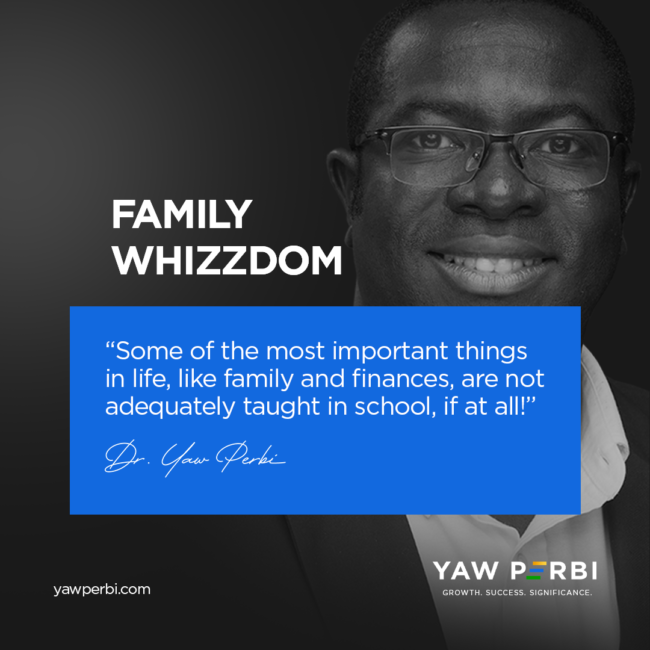
7 Reasons Why the Systematic Study of Family Matters
It gives me great joy that a number of high-flying professionals have chosen to pay up and show up at this year’s Family Foundations mastermind. The interesting group contains two professors (of marketing and microbiology), a couple of finance people (one of them works at the central bank of Ghana) and connecting online from three countries.
I admire their zeal and humility to jaw-jaw about family matters but something in me also makes me quite sad: Why are some of the most important things in life, like family and finances, not adequately taught in school, if at all?! Mind you, this current Family Foundations mastermind cohort has three people with doctorates, two PhDs and an MD!
The major thrust of this mastermind is to cause a paradigm shift on the prime place of family for us personally, for society in general and even for posterity (in other words WHY family matters) but even before delving into that everyone is being exposed to WHY a systematic study of family itself is necessary in the first place. Here are seven reasons why:
1. To understand SELF better.
“A systematic study of family will enable you to untangle your emotions from your understanding of family. An objective look at the varieties of families will better equip you to understand your own family relationships. This will allow you to bypass your preconceived ideas about marriage and family, come to a better understanding of yourself and your role within your family, and make more informed choices regarding future relationships.” (Riggs & Tweedell, pg. 2)
2. To understand OTHERS better.
“Taking a systematic view of marriage and family life will enable you to better comprehend the world in which you and your family operate.” (Riggs & Tweedell, pg. 3)
3. A way to uncover and derail MISCONCEPTIONS and MISPERCEPTIONS.
“People enter marriage and family relationships with a wealth of misconceptions and misperceptions… some common myths about mate selection, marriage, and parenting. With an objective understanding of marriage and family life, you should be better equipped to prevent or derail disillusionment in your future relationships.” (Riggs & Twedell, p.3)
4. To positively IMPACT your world.
We are “called to make a difference in the world. What better place to make a difference than within your own family? Most people are not called to a foreign country to perform mission work; they can find mission work right in their own communities. By understanding the varieties of ways of “doing” family, students can help those around them actualize the best marriage and family relationships possible.” (Riggs & Tweedell, p.3)
5. We need to get down to the core of all our beliefs, values and behaviour: WORLDVIEW.
6. Some of the most important things in life, marriage and family, are not adequately TAUGHT IN SCHOOL, if at all!
We’ve got to find these through an attitude of lifelong learning and a pursuit of informal and semi-formal growth opportunities like masterclasses and masterminds.
7. There are ancient THEOLOGIES, modern THEORIES, and practical TOOLS that make family work.
CONCLUSION
In the end, nothing works until you work it! And we have no right to say something doesn’t work unless and until we have worked it the prescribed way. I agree with Mark Twain that schooling and education are not the same. No matter how much schooling you’ve done, perhaps it’s time to get yourself an education on why family matters and how to make it work.
Reference
Riggs, Barbara A. And Cynthia Benn Tweedell. 2010. Marriage and Family: A Christian Perspective, 2nd Edition. Marion, Indiana: Triangle Publishing.
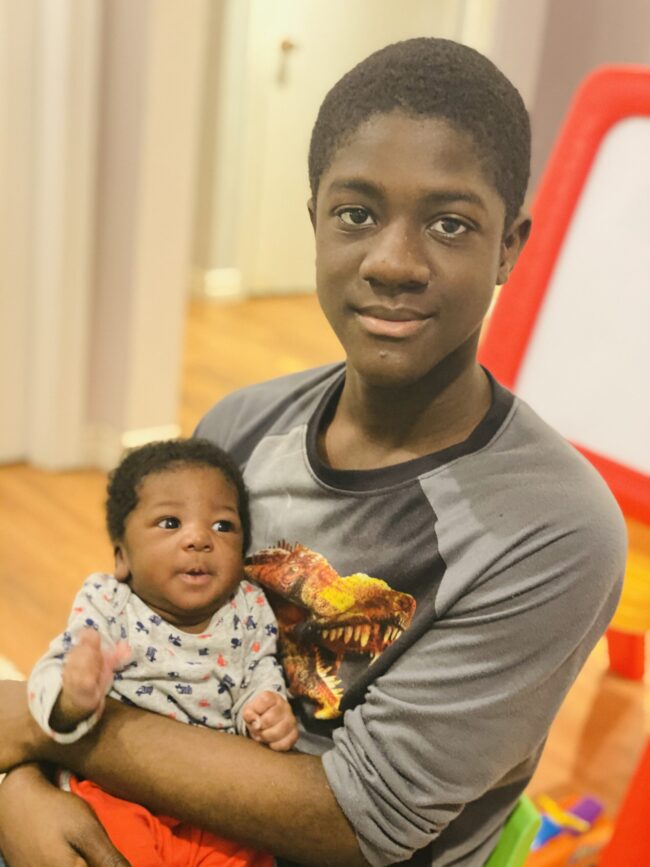
Family Foundations No One Lays Yet Everyone Needs
One of the most stupid things I’ve ever done is to travel 10 whole years into marriage before ever seeking formal post-marital counselling. After the several pre-marital sessions lasting many months in 2006, Anyele and I went in the power of that for a decade until we felt we needed further formal, external help. Why on earth did we do that?
Come to think of it, every 5,000 km or so we were changing the oil in our car and getting it serviced yet not so with our marriage. Doesn’t every marriage need regular marriage maintenance? Why wait till we’re sick before we see a doctor when we can at least do annual check-ups? In fact, I would say we came from a culture where seeing a counsellor connoted there was a pathology; and not so much a maintenance thing.
Friends, I’ve had several conversions since August 12, 2006 that have better aligned and further fortified what I thought were already ‘excellent foundations.’ Sometimes there’ve even been foundational cracks I’ve had to fix (and God knows I’m not done). For time to time I’ve come across new information that has caused me to repent, have a change of mind, and realign our foundations to keep this family building strong and lasting.
EXAMPLES OF FAMILY FOUNDATIONS TO REVISIT
Feel free to say “shame on you Yaw” but I had never heard of a family genogram until barely five years ago! How could such an important tool and exercise not have been part of our foundations when we set out a decade-and-a-half ago? And if you’re asking “what the heck is that?”, then trust me, you don’t even know you need one until you eventually discover it. Afterwards you would wonder how in the world your family had been surviving without one. I say ‘surviving’ because you will then notice that what you thought was ‘thriving’ wasn’t quite so.
Then there are basic tools for connecting with spouse and children on a deep emotional level we only received in the last five years. We learnt the 10/10 from the Pellmans and Temperature Reading from the Scazzeros. “Love your wife,” yes I want to. “Respect your husband,” yes she wants to. But how? The Kraemers also gave us tools for this.
And all this is for a good-looking couple who had a pretty solid family heritage, coming from a few generations of good Christian homes, being smart, leaders of our church youth fellowship who had lived virtuously and gotten married as virgins. We even themed our wedding “a celebration of purpose, passion and purity.” Alas! We who ‘had it all’ have realized there are family foundations everyone needs yet almost no one lays. The very marriage mentors who have been blessing us with these paradigms, praxes and practical tools are passionate about their ministry of marriage mentorship today precisely because they themselves didn’t have these when they were our age!
Family is a BIG deal. It is the basic unit of society, just like the cell is for all biological life and the atom is for all matter. Yet the thing about family foundations is this: just like finances, very little about how to make it work well is taught in school about it. If one isn’t fortunate to have a spiritual community that provides quality family life information and formation, you’re in a hard place. There are many divorces that are preventable, if the foundations could be reconfigured. There are some we’ve been able to help save by God’s grace; and others… well… too bad, too late.
THE MOST IMPORTANT PART
Few will argue against the assertion that the most important part of a building, or anything else that is built for that matter, say a marriage, is its foundation. A ton of things have been said about foundations. Gordon B. Hinckley asserts, “You can’t build a great building on a weak foundation. You must have a solid foundation if you’re going to have a strong superstructure.” Adding his voice, David Allan Coe says, “It is not the beauty of a building you should look at; its the construction of the foundation that will stand the test of time.” The greatest teacher of all time, Jesus Christ, classifies life builders into two categories, wise and foolish, purely based on thee foundations they lay: the foolish build on sand, the wise build on rock.
My beloved mentor Peter Scazzero talks about foundations a lot in the Emotionally Healthy Leadership paradigms he teaches. And no wonder, since like the typical New Yorker he is, Pete is ever so familiar with the skycraping towers of Manhattan. This is how he explains the importance of digging deep foundations if we are to build life’s tall towers of significance:
Manhattan consists almost entirely of bare granite, a very hard and strong type of rock. To carry the weight of a 75 or 100 story skyscraper, foundations known as “piles” are used. These are concrete or steel columns hammered into the ground with a massive crane until they penetrate solid rock.
Some pilings go twenty-five stories under the ground. The heavy weight of the skyscraper is then distributed through each of the deep “piles” in the ground below. Together they are capable of supporting the structure’s enormous weight.
If the pilings are drilled in poorly, cracks eventually appear in the structure. Entire buildings may lean. Then they must be torn down or lifted completely so the piles can be reset – a costly and time-consuming process.
FAMILY FOUNDATIONS MASTERMIND
As you might be aware from a previous blog, “a mastermind group (often shortened to just ‘masterminds’) is a peer-to-peer mentoring group used to help members learn together, solve problems, birth new ideas and gain clarity with input and advice from the other group members.” For eight weekly sessions, from April 4 to May 30, I shall be walking along with a dozen leaders who want to re-examine their family foundations and receive new paradigms, praxes and practical tools to finally fix faulty family foundations. Inputs will include several book chapters, videos, articles, practical exercises, discussions and debates. Two special features and benefits will be FREE membership of an online chest of over 20,000 resources and a FREE DISC Personality assessment with a 37-age customized report!
You can be sure that “mastermind groups are great in holding each other accountable for the goals and outcomes each member comes up with themselves” (see here). Outcomes and outputs of this particular Family Foundations Mastermind are as follows:
- Paradigm Shift on the Prime Place of Family
- Ancient Wisdom Applied
- Current Family Systems Theories Tested
- Practical Relationship Tools (for emotional connection, communication, forgiveness)
- Family Genogram
- Behavioural Assessment
- Emotional Needs List & Action Points
- Family Mission Statement
- Hierarchy of Priorities Configuration
- Integrated Life Exploration & Commitment
Register here and let’s go back to basics. Let’s finally fix faulty family foundations that everyone needs to but hardly anyone does.
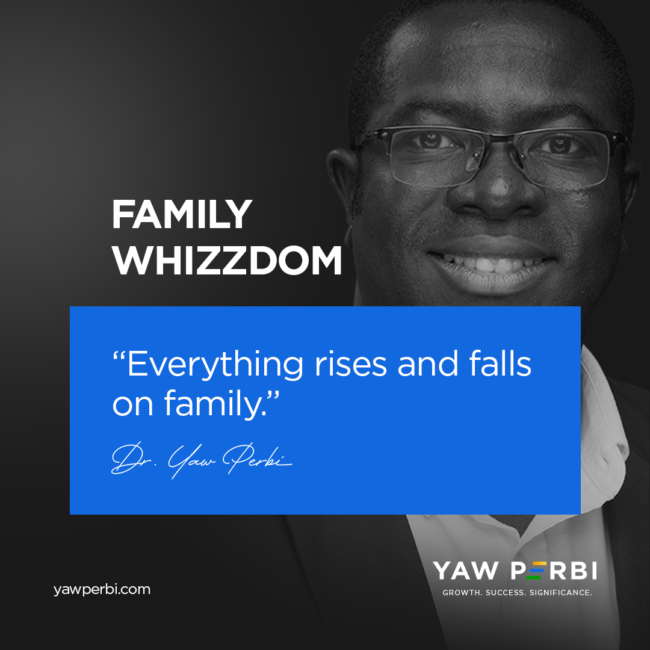
Everything Rises and Falls on Family.
My mentor likes to say, “Everything rises and falls on leadership.” This is true but there is something even more fundamental that all leadership itself rises and falls on. I say, everything rises and falls on family first. At least five reasons come to mind why:
1. CREATOR PERSPECTIVE | God is Family
“In the beginning, God…” That’s how the entire holy scriptures begin in Genesis 1:1. I have a theistic worldview as a bonafide African, and a Biblical one at that as an African Christian. My understanding is that everything is created by a Supreme God and that He created human beings in His image and likeness. That tickles my theological senses a lot because according to the Christian view, GOD IS FAMILY. At the centre of the universe is family–Father-Son-Spirit. At the core of cosmos is a love, relationship–Love, Lover and Love itself. Everything rises and falls on love, everything rises and falls on God, everything rises and falls on family.
Of course we could go into how God created the first family after declaring “it is not good for man to be alone,” how throughout scripture and history God chooses a person and their family to work through, the many scriptures that seek to protect, preserve and promote family etc. Even when God decided to wrap Himself in human flesh and move into our human neighbourhood in the person of Jesus Christ, he chose to implant himself in a family–Mary and Joseph’s. Everything rises and falls on family.
2. CRADLE PERSPECTIVE | Parents shape world shakers
Have you ever heard the proverb, “The hand that rocks the cradle rules the world”? That is 1865 wisdom unleashed on the world through the refrain of a William Ross Wallace poem that praises parenthood as the preeminent force for change in the world (see here). Of course, at the time it was written, nearly two centuries ago, the work of raising children was mainly seen as the role of the mother but we know all too well it takes two to tango. Both father and mother have a role in rocking the cradle, even procuring that cradle in the first place. Parents and the wider family, shape the people who would shake and move the world, for good or ill. These two PhDs Barbara Riggs and Cynthia Tweedell don’t mince words in their Marriage and Family textbook: “The strongest influence in your life will stem from family.” Period. Everything rises and falls on family.
3. CELLULAR PERSPECTIVE | Family is the unit of humanity
So yes, “it is the hand the rocks the cradle that is the hand that rules the world” but alas! today, everyone wants to change the world; no one wants to start at home. The irony! Not only does everything rise and fall on family because the hand that rocks the cradle rules the world but also the family is the basic unit of society just as the cell is the basic unit of biological life or the atom is for all matter. Yet somehow we think we can flourish in the corporate world, government and such without adequately addressing the lowest common denominator!
If you think one cell gone bonkers is no big deal think again about cancer. That’s all it is. Cells gone bonkers, multiplying unhealthily–and eventually spreading that craziness (metastasis). Sooner or later a whole monarch or president or parent dies, all because of a cell gone awry. Everything rises and falls on family, that one cell.
4. CALCULATION PERSPECTIVE | Hindsight is 20/20
Today’s C-level executive claims “It’s not the quantity of time but quality that I spend with my family that matters.” This is a fallacy. Family costs what it costs and it doesn’t go on sale! The question is if we are willing to pay the price.
Even for the richest and most popular of leaders, when they assess their lives, doing a calculation of all they’ve spent their talents and energies, time and finances on, the truth remains that, “There’s no one who on their deathbed has been heard to say, “I wish I had spent more time at work.”” What folks should’ve known first, they only find out last: Everything rises and falls on family.
5. COVID-19 PERSPECTIVE | The only place to be/go has been home.
When our all-important selves on our all-important endeavours were brought to a screeching halt by the latest Coronavirus pandemic, where did we all head? Home! When literally every economy and society locked down, where did we stay put and be safe: with family! I’ve never seen so many advertisements on primetime television asking people to stay home in my life! Heroes, according to the World Health Organization, stay home! Ha! Who would’ve thought that day would ever come!
Even high-flying pilots have been grounded, literally, at home. I haven’t flown in a year–that is crazy considering that there were times in the last few years when I did as many as 70 flights in the year! My VIP airport lounge passes and platinum airline and hotel statuses have been rendered useless. The only thing that has mattered most has been the people many of us paid the least attention to prior to COVID-19: family. Of course, some families have turned at each other and self-destructed because of the very forced proximity that should’ve been a blessing!
Crucibles reveal what’s most important. After this pandemic is over, we would need insignia to remind us, lest we forget, everything rises and falls on family.
THE MILLION DOLLAR QUESTION
So why then do many, too many, in our generation tend to put family on the backburner? What if we all invested in our families the same degree of seriousness we put into our professions or in climbing the corporate ladder? I’ve been amazed at how many C-level executives are executing vision and mission statements and strategic foci for their organizations but have not given a thought to forging a simple family mission statement yet alone execute it.
Granted, some people really want to give their families their best shot but they just don’t know how or don’t have the tools to. Since Anyele and I welcomed our seventh child into the world, we’ve had so many puzzles and questions thrown our way that we’ve decided to hold a free online session from time to time for various folks to share our hearts, heads (ideas) and hands-on stuff (skills) about family, theirs and ours! Would you believe after our first 2021 15 Laws of Growth Mastermind through January and February the one thing that made all these participating professionals vote for an extra/bonus Mastermind session, which I obliged to facilitate for free, was family?
In one of the quarters of each year, my coaching company will run a 60-day journey through powerful principles of family foundations in a paid mastermind group for healthy family growth, based on ancient wisdom, current family systems theory and practical tools that work! This will be targeted at C-level executives comprising weekly 90-minute online sessions for eight weeks with lots of readings, video clips, assignments, inspiration, encouragement and accountability throughout the weeks! Each week, a unique practical skill will be learnt to better our relationships.
Family: everyone has one–no matter how dysfunctional or atypical. Even if we don’t form one of our own (family of procreation), everyone comes from one (family of orientation) that we didn’t choose. I confess that being a very goal-oriented, high achiever myself, I never thought the day would come when I would see and treat family with the sort of ‘first placeness’, centrality and reverence I have for it today. Perhaps if others also had a paradigm shift that everything rises and falls on family, everything would change too.
What do you think?
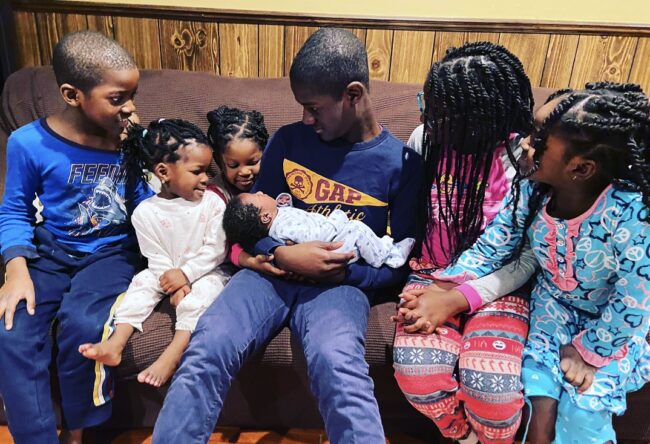
Family Planning Isn’t What You Think
There has been such an overwhelming response (over 80,000 reached!) to a social media post I made regarding a misconception about the essence of family planning that I felt it might be useful to document that write-up on this blog.
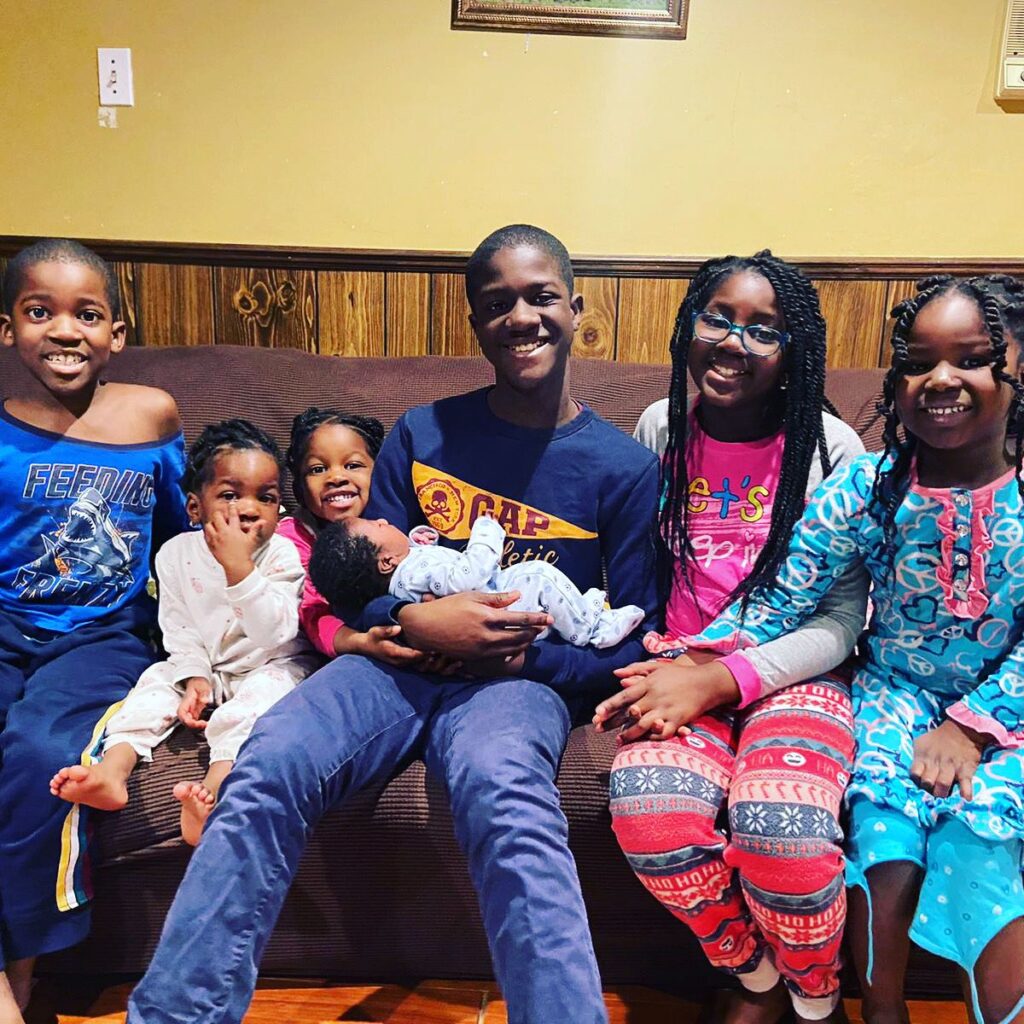
Our six older children totally excited about the arrival of the seventh the day we got back from the hospital after delivery.
On Tuesday, March 2nd our seventh child was born. The rather long boy descended down his mother’s birth canal at the Montreal Jewish Hospital in all his 3.895kg glory. The posting of this momentous occasion on social media sparked a flurry of responses, almost 100% affirmative but I won’t be fooled. Not everyone thinks my wife and I are smart, planet-friendly, trendy, progressive, modern and such.
Just a couple of weeks earlier I had been on a Zoom call with a just-married pastor in Ontario who hopes to have a family of three children. Upon hearing that Anyele and I were expecting again, our seventh child for that matter, he unwittingly asked, “why so many?” To which I responded, “why so few?” The blushing of his face and awkward laughter revealed his embarrassment.
I have mentioned before how people have made it very clear to Anyele and I that they would rather raise pets than have children. Generally our human selfishness/self-centredness doesn’t allow us to do the parenting thing (at all or well) because children are an inconvenience, suckers, an unwelcome reflection of our marred selves, among a host of other postmodern reasons. See here.
“WHY SO MANY?”
We have met people who are proud DINKS–Double Income No Kids. In many circles we’ve been in, this has been the ‘in thing’ or at best two is the most ‘decent’, ‘smart’ and even ‘cute’ thing to do. As I heard one preacher humorously quip, “a boy for me and a girl for you, and praise the Lord we’re finally through!” A year ago, I shared here some of the reasons why Anyele and I have chosen to have “so many.”
Having children or not, many or few at the end of the day is more of a worldview issue than a socio-economic or even climatic one. I share our Christian theist view in this blog. In summary, “There is a higher Being than our selfish selves that beckons; a higher purpose than the painful inconvenience that compels; and a deeper fulfilment of something (and someone) that outlives making merry today and just dying tomorrow.”
THE INTEGRATED LIFE
At our executive education firm, YAW PERBI, we strive for LIFE in all its fullness—#Leadership, #Integrity, #Family, #Entrepreneurship. I personally find it curious that many in the corporate space ignore, even hide, family (and faith) until occasions like Christmas. All of a sudden families come out of the shadows, whipped out and splurged on Christmas cards. You can go on LinkedIn right now and see how it is so ‘professional,’ meaning, almost family-sterile.
I’m super proud of my Wonder Woman Wife, Economist-Entrepreneur Extraordinaire, for the safe delivery of our seventh. We thank God for the privilege of a full quiver of seven lethal arrows for life’s battles, conquests and such. This baby, like the preceding six, will change our lives no doubt—rescheduled meetings, halted plans, budget increases… but what else could life be about?! True success, as my mentor succinctly puts it, is “when those who know you the best, love and respect you the most.”
At Yaw Perbi, we promote people and cheer on companies that seek leadership authenticity by making the integrated life the way to go. Call it life/work balance or whatever you may, our corporate folks, especially C-level folks, must find a way to bring their whole selves to family and same to work. My favourite MBA teacher on this, Bill George, says more about this more eloquently than I could here. Cheers to the #integratedlife, where marriage is not an inconvenience, children are not a nuisance and family is not an afterthought, only receiving the crumps of our time, talent, treasure and efforts.
FAMILY PLANNING ISN’T NO/FEW CHILDREN
Why do so many people wrongly think ‘Family Planning’ means having few/no children? Family Planning is “the ability of individuals and couples to anticipate and attain their desired number of children and the spacing and timing of their births.” Although it was clearly a quote (inverted commas and all), a lot of people on social media were giving me a pat on the back for this spot-on definition without realizing it isn’t something I cooked up to justify my number of children, but actually a World Health Organization (WHO) definition. Of course they add contraception as the means to achieving this desired end of number, spacing and timing.
Even before we got married 15 years ago, Anyele and I purposed and planned to have seven children. There were no guarantees; God ‘engraced’ us. Don’t judge us for having “too many” (in your opinion); we shan’t judge you for having “too few” (in our opinion) or even none.
Your purpose and plan may be different from ours. The most important thing is to ensure that it is God’s unique plan for your unrepeatable family that you are following and not just “comform[ing] to the patterns of this world.”
We hope your Family Planning excites you a lot and scares you a little—just like ours!
Related Blogs
We Really Don’t Like Children That Much Part 1/3
We Really Don’t Like Children That Much Part 2/3
We Really Don’t Like Children That Much Part 3/3
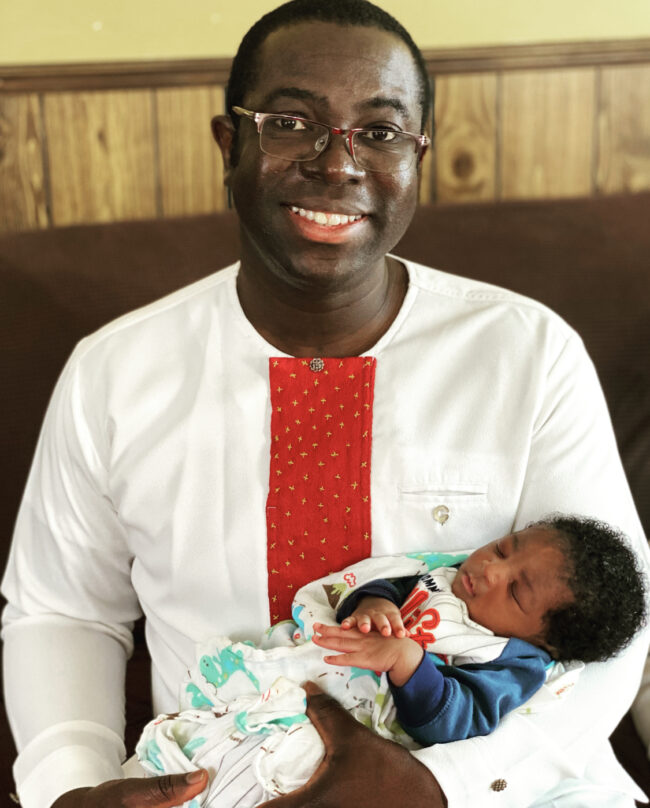
Born in the Month Ghana was Birthed, Nii Ajorwor Ampa Perbi is here!
It is always an honour to get to name someone or something, especially a seventh biological child. The historic and prophet names of the other children have been explained in the past here.
Our seventh, and final, child was born on March 2, 2021 at the Jewish General Hospital in Montreal, Canada. In accordance with our Akan (Yaw’s) and Ga (Anyele’s) traditions of Ghana, we named him on the eighth day, the same day of his birth, Tuesday, a week later. Like all his siblings before, the 3.895kg champion, whose 54cm height excited the obstetric staff because it’s over the 97th percentile, has been given a name pregnant with historic and prophetic meaning. And his name shall be called NII AJORWOR AMPA PERBI. Here’s what each given name means:
NII
All the older six siblings are called Nana, an Akan title meaning prince(ss) and also signifying God as King. Nii is the Ga equivalent of Nana.
AJORWOR
Over a dozen years ago, with inspiration from the life of the patriarch Abraham we felt called out of Ghana: “Go from your country, your people and your father’s household to the land I will show you.” So we did, leaving a great life in Ghana to start from scratch in Canada. The commission came with a commiserate blessing though: “I will make you into a great nation, and I will bless you; I will make your name great, and you will be a blessing. I will bless those who bless you, and whoever curses you I will curse; and all peoples on earth will be blessed through you.” (Genesis 12:1-3)

The Ga version of Genesis 12:1-3. You see a variety of renditions of blessing (jormor–anglicized): major (I will bless), aaajor (be a blessing)
It’s been nearly a decade-and-a-half since our being called and sent forth and we feel we’ve really and truly been blessed by the LORD in every sphere of life–physically, spiritually, socially and academically (which was the original door open in Canada). Ajorwor means “we’ve been blessed” or in context, “God has blessed us!”
And we are blessed not just qualitatively but quantitatively too! We had one child at the time of the promise, now we have seven times the number of children! Every child is a blessing, a reward, a heritage from the LORD and an arrow for waging life’s battles and extending the glory of the Kingdom of God on earth as it is in Heaven. Indeed our quiver is full, and the Psalmist says we are blessed for having a quiver full of arrows!

Ajor nuu means “blessed is the man,” but we say ajor wor, “blessed are we all,” for having a quiver-full of sharp arrows
AMPA
Ampa is the baby’s maternal grandfather. When we felt it would be appropriate to name our last child after this noble man we didn’t know Nii Ajorwor would be born so close to Ghana’s Independence Day, March 6. You will soon understand the significance of this. Initially called Kwame Patterson, great grandpa changed his name to Nii Ampa Sowa. He left to study Industrial Management at Leeds Polytechnic, United Kingdom, in 1958, a year after Ghana’s independence from British colonial rule.
Asked by his cousin Ebenezer Ako-Adjei, one of the ‘Big Six‘ founders of Ghana, to come back to help him run his Ministry (Foreign Affairs), he returned to Ghana and became his Personal Assistant in 1960. In 1963 when Ako-Adjei was arrested in a political frame-up, Anyele’s grandfather was arrested too. He was released from Usher Fort and Nsawam prisons after six months detention. He left the civil service.
In 1965, he joined Parkinson Heward (builders of the Tema industrial municipaity) as a bookkeeper. In February 1966, when there was the coup d’etat by the National Liberation Council that ousted Kwame Nkrumah’s government, Parkinson Heward was asked to leave the country. He vowed never to join politics again… hence Anyele’s dad’s aversion to politics! Nii Ampa Sowa passed away in 1980, while Anyele’s dad was pursuing his graduate studies in Canada, where Anyele was born.
THE BLESSING
Interestingly, Ajorwor (“we are blessed”/”we’ve been blessed” in Ga) combined with Ampa (“true” in Akan), Ajorwor Ampa means “truly blessed!” So we have been blessed indeed; but blessing is a mountain with no peak. There’s so much more where these blessings came from and we trust that Nii Ajorwor not only represents blessings past but is a divine sign and a symbol for many more blessings to come to our Perbi family and through us, to all nations! Welcome, Nii Ajorwor Ampa Perbi! Akwaaba!
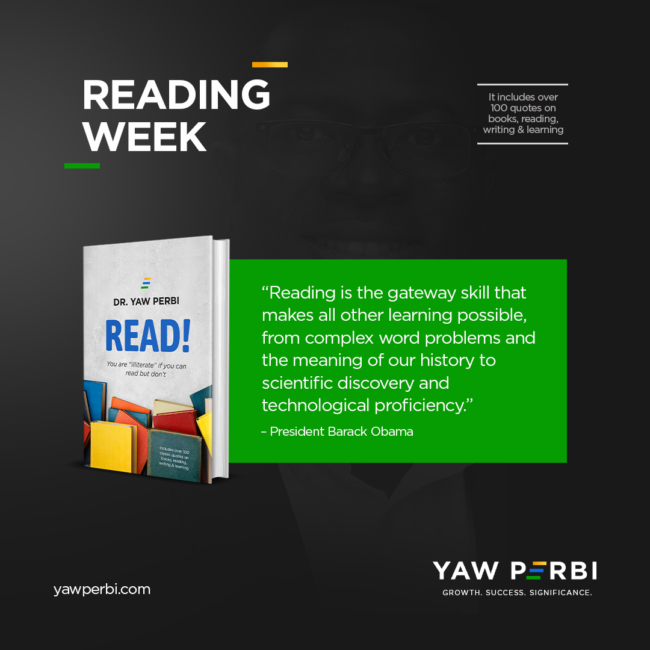
I Used Not To Like Reading. Two Statements Changed Everything.
I wouldn’t be where I am today but for books. I mean precious books like the Holy Bible (which I’ve read cover-to-cover about 10 times), Rich Dad Poor Dad (Robert Kiyosaki), The 7 Habits of Highly Effective People (Stephen Covey), The Purpose-Driven Life (Rick Warren), Before You Say I Do (Yaw Boamah), The 21 Irrefutable Laws of Leadership (John Maxwell), The E-Myth (Michael Gerber), The Prayer of Jabez (Bruce Wilkinson), Create Your Own Future (Brian Tracy), The Emotionally Healthy Leader (Peter Scazzero) etc. My life five years ago is totally different from my life now—and so was my life five years prior to that totally different—just because of the books I’ve read.
Consequently, for a decade-and-a-half now I’ve been a serious reading campaigner. Now, not only have I grown further fierce in campaigning for people to love reading, my wife and I have stepped up by stepping down. What I mean by that is, we’ve enhanced our campaign but decided to go further down to the age where humans are most pliable: childhood. And we began with our own seven children. This is the philosophy behind Perbi Cubs Library Services. You may find the story behind Perbi Cubs here.
But being a reading enthusiast, let alone champion, hasn’t always been so. I used not to like reading, at all! Then two statements hit me hard and totally shifted my paradigm, absolutely altering my way of thinking.
THE ‘RACIST’ & ‘TREMENDOUS’ STATEMENTS THAT CHANGED EVERYTHING
The first statement, I randomly encountered on the internet. I was but a youth then. As I confess in my book READ!, “I was so angry my intestines could have gushed out. If I were light skinned my face would’ve turned tomato-red instantaneously. Yet deep, very deep down my heart I knew there was a truth in this almost racist statement glaring at me from the computer screen.” This is what it said: “THE BEST WAY TO HIDE SOMETHING FROM BLACK PEOPLE IS TO PUT IT IN A BOOK!” Ah! Upsetting! Yet in many ways this is true, I’m ashamed to admit: We don’t read!
The other paradigm-knocking statement was Charlie ‘Tremendous’ Jones’ rather prophetic pronouncement: “You will be in five years where you are today except for the people you meet and the books you read.”
These two statements turned my life around to not only become a voracious reader and prolific writer, but an advocate of the same!
WHAT IS READING?
We all have read (or even still reading even right now) academic or technical texts to pass an exam or for promotion, for professional growth etc. That is not what I mean by my read campaign. When I speak of reading I mean leisure reading. Also known as “recreational reading, pleasure reading, free voluntary reading, and independent reading,” it is “independent, self-selected reading of a continuous text for a wide range of personal and social purposes. It can take place in and out of school, at any time” (International Reading Association).
Samuel Johnson shares the following sentiments: “A man ought to read just as inclination leads him; for what he reads as a task will do him little good.” I get him. Leisure reading must be voluntary and pleasurable–not just a chore–if it is to benefit us maximally.
WHY MANY ARE SCHOOLED BUT STILL “ILLITERATE”
Several of us who have learnt “ABCD…” and can practically function simply do not read. In my book READ!, first published in 2005, here’s my thesis: If you know how to read and you don’t, you are no different from the illiterate! The bottom line is the same: you both don’t read! That’s why the subtitle of the book is “You are an “illiterate” if you can read but don’t.” Many years ago Mark Twain put the same idea this way: “The man who does not read good books has no advantage over the man who cannot read them.”
CONCLUSION
If it’s any comfort to you, a guy who used not to like reading today reads several books at the same time! Even further, I’ve acquired this new habit of writing several books at the same time too! Something you need for your future to happen is hidden in a book near you. As they say at Perbi Cubs, “success is just a book away.” And it’s true. If you don’t believe Perbi Cubs or Charlie ‘T’ Jones, take it from me.
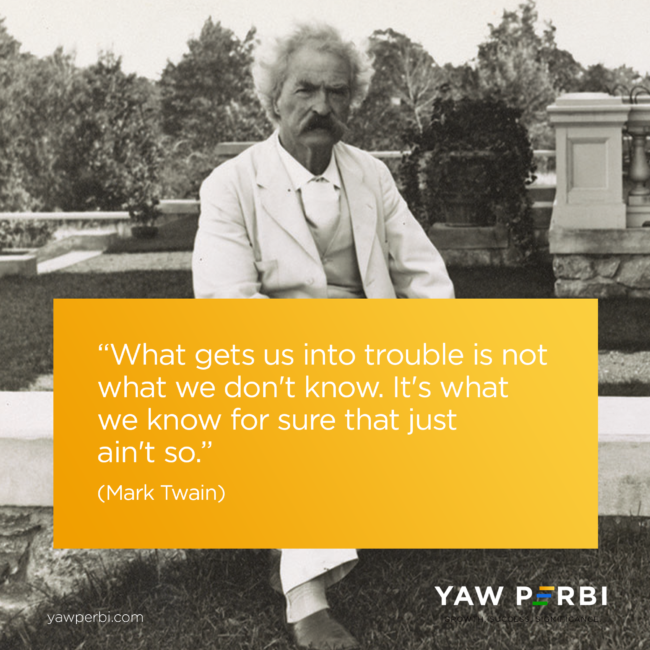
A Way to Prevent Heartbreak: Clarify Expectations
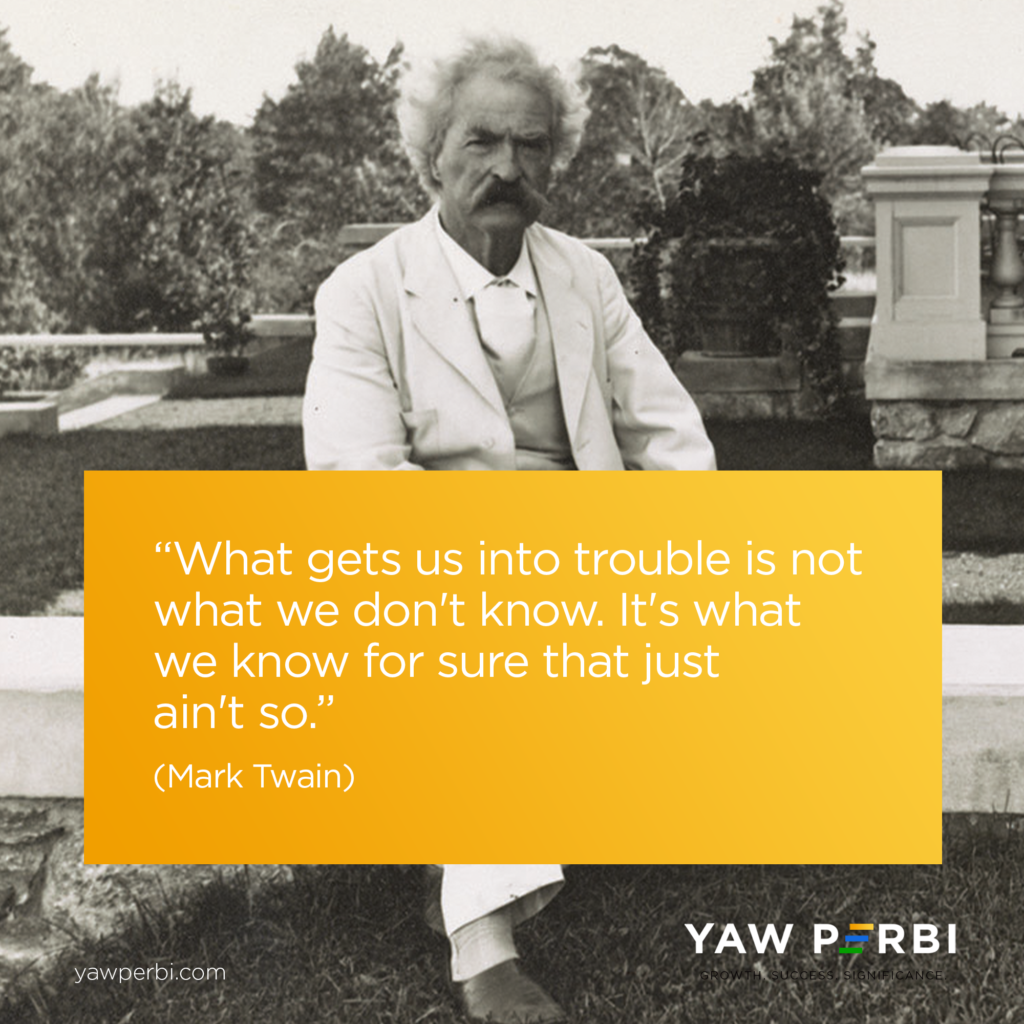
While what you don’t know may kill you; what you think you know but really don’t may kill you faster!
I have wanted to talk about this for months–how to prevent unnecessary hurt from unmet expectations–but last week an incident happened with one of my associates that really catalyzed me to share this urgently. So let’s talk about unmet expectations.
Whether it’s between spouses, parent and child, boss and workers or even among co-workers, family folk and church members, this is quite a common occurrence. This is particularly so African, Chinese, Japanese and Korean cultures that employ indirect communication. If you’re like me, you’ve probably been hurt before by unmet expectations. In fact, sometimes we don’t even realize we had an expectation until it was not met!
Mark Twain once said, “What gets us into trouble is not what we don’t know. It’s what we know for sure that just ain’t so.” We tend to have expectations that are unconscious, unrealistic, unspoken and unagreed upon. Let me share how you can flip these four things around and protect your heart against heartbreaks from unmet expectations. I owe this life-saving lesson from my New Yorkan mentors, Pete and Geri Scazzero.s
THE MILLION DOLLAR QUESTION
How do you know your expectations are valid or not? As hard-to-take as this may seem, when the expectation is unconscious it is invalid. In fact, if even we don’t even know we have them until we are disappointed how on earth is the other person supposed to know and meet it? When it is unrealistic it is invalid as well. Even if it is reasonable and we are conscious of it but it has not been articulated, it is still invalid. The common lame excuse we tend to give is, “Oh, but they should know?!”
In the event that our expectations meet all the above three criteria–conscious, realistic, spoken–but the other party has not agreed to them, they are still invalid. While this may seem very Western, I have learnt as an African-Canadian that it is never wise to assume agreement!
Of course, important caveats include marriage (where the vows already spoken have created certain clear expectations like fidelity), parent-child relationships (expectation of chores) and employer-employee dynamics where expectations have been clearly laid out in contracts and policy and supposedly read and accented to. Even in these relationships with broad-stroke expectations, situations occur that demand clarifying expectations further.
WHAT TO DO TO FORESTALL HEARTBREAKS
To prevent heartbreaks from unmet expectations, ensure your expectations are:
(1) Conscious: I am aware of my expectation.
(2) Realistic: I have evidence to support that the expectation is reasonable in the sense that the other is able and willing.
(3) Spoken: I have expressed the expectation clearly.
(4) Agreed Upon: The other person has agreed to the expectation by saying “yes.”
I would highly recommend you take the Scazzero’s Emotionally Healthy Relationships course for a full meal and good skill-building in this area they call Stop Mind Reading and Clarifying Expectations.
WHAT TO DO WHEN HURT HAPPENS
In the event that hurt still happens from unmet expectations, valid or not, REFRAMING the painful experience is everything. As John Maxwell renders it in the Law of Pain, “good management of bad experiences can lead to growth.” Reframe the painful experience as follows (modified from a Maxwell process):
a) Define the problem –> The painful situation I need to process right now is…
b) Understand your emotion –> My feelings about this are…
c) Articulate the lesson –> My lessons in is this are…
d) Identify a desired change –> The changes I want to effect are…
e) Brainstorm numerous pathways –> The ways out are…
f) Receive others’ input –> What I’m learning from others is…
g) Implement a course of action –> My course of action is 1. Embrace the reality of pain 2. Learn my lesson(s) 3. Share my lessons 4. Change a. ______ b. ______ c. ______ d. _____.
CONCLUSION
You know what they say happens when you assume: you make an ass of u and me. An expectation is only valid when it is mutually agreed upon. Let’s do less heart damage by providing and demanding clear expectations of others. Let’s ensure in all our relationships that our expectations are conscious, realistic, articulated and agreed upon. And when things fall through the cracks and we feel the sting of pain from unmet expectations, let’s reframe the experience well so we can still grow and flourish.
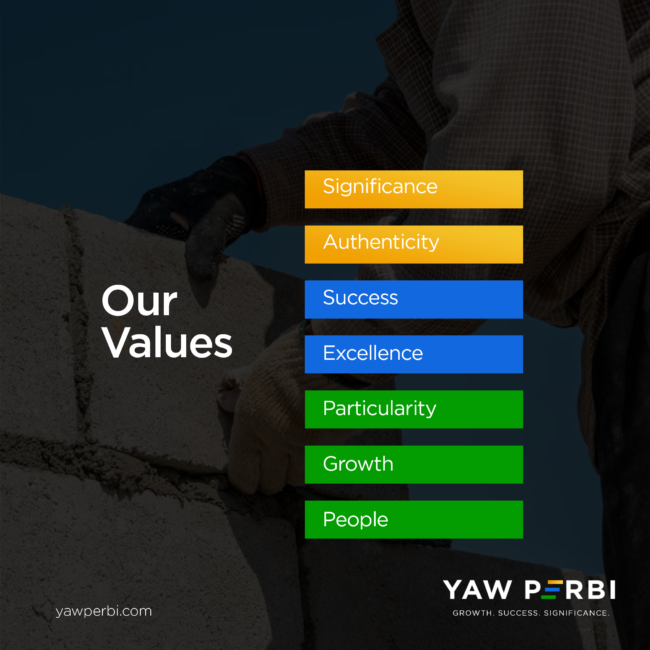
What’s Good? | A Values Convo
A common greeting among today’s cool people is “what’s up?” to which one may sometimes get some really sarcastic answers from uncool people (lol!). A not so common greeting would be, “What’s good?” That would be slang for an invitation to a values conversation. I’ll explain.
For the last couple of weeks I have been raving about the importance of vision, mission and values. My thesis is that these three are so life-giving, life-forming and life-determining that they are aptly described as DNA, be it personal or corporate. I did share some examples of vision and mission statements of companies as well as my own family’s, encouraging professionals to put in the time and work to hone these and commit to them to the same degree they do their corporate work (if not even more). Now a final word on the third piece of the DNA: values.
WHAT ARE VALUES?
Values are what matter most to us—what we value. Yes, our values are literally what we value. They are what we consider to be good, what’s good. What matters most to us about the kind of people we are, the type of work we do and how we behave as we do the work are our values.
Values are the standards a person, family or organization holds to be most important that cause individuals to make decisions and act the way they do. As a mentor of mine puts it, values “represent how a community aspires to act or function as it carries out its mission in pursuit of is vision.” I like this element of aspiration—perhaps we may not have quite attained that standard of behaviour or character or whatever ideal yet but it’s on our books to keep reminding us to keep stretching towards it.
So! In summary, if vision is what we want to SEE and mission is what we will DO to see what we want to see then values determine HOW we will behave (be and do) as we do what we want to do in order to see what we want to see.
PEELING BACK THE LAYERS
Whether ethnic or corporate, culture is basically how things are done here a.k.a behaviour. What many do not realize is that BEHAVIOUR—“what’s done”—is only, quite literally, the tip of the iceberg (which is usually about 10% of the actual size of the iceberg!). Behaviour is only what is seen and experienced on the outside—from dressing to speaking. It’s the soil/crust of the earth (another metaphor), if you like.
Beneath behaviour are the VALUES—“what’s good”—informing it. Digging deeper beneath sea level or soil level we will find the BELIEFS—“what’s true”—or “faith assumptions”, that are determining these values.
Deepest of all, at the bottom of the iceberg or at the core of the earth is our WORLDVIEW—“what’s real.” That is the root of the fruit we see called behaviour or culture.
Whether it is individuals or families, churches or corporations, how many times haven’t we attempted to change behaviour without digging all the way to the worldview source?
VALUES ARE NOT PRINCIPLES
I am of the Covey school of thought that values are not synonymous with principles. Principles are timeless, universal laws that govern everything (from physical laws of Physics to spiritual laws) but you can choose to value them and/or have values based on those laws or not. For example, there is a certain ethnic group I have come across that does not give children eggs (behaviour/culture). Undergirding this is not valuing eggs in children’s diet. But underlying this further is a belief that the children would become bald (like an egg) and become thieves (or both). At the very core of this ethnic culture is a certain animistic worldview that produces the belief that leads to the value and produces the behaviour of not feeding children eggs.
This value, no matter how cherished, goes against the principles of nutrition. Breaking the principle because of this value results in protein-energy undernutrition in the community whose two primary chronic forms are kwashiorkor and marasmus.
SO WHAT’S GOOD?
It is absolutely essential that everyone, personally and corporately, determine their values. Values comprise part of the DNA that gives, forms and determines the kind of life you lead. But like the chemical bases that form DNA, it is worth examining the formative beliefs and underlying worldview that bring forth these values. In the end, what’s good is determined by what’s core.

Family DNA: Vision, Mission & Values
What if we took our families as seriously as we take our corporate work, beginning with crafting solid family vision and mission statements and clearly outlining our family values?
When I was still in my late teens and learnt about mission statements from The 7 Habits of Highly Effective People I was über excited! I was an eager beaver, wanting to learn more and actually crafting one for myself. In addition, I was eager to teach everybody who would listen to craft one too. In fact, a large part of why and how The HuD Group was born was because we wanted to inspire and empower young people to discover their God-given purpose and reach their full potential using tools like personal mission statements. Then I tried to convince my parents to work with my siblings and me to create one for our family. Let’s just say, I did not succeed.
Most of us work in places that have vision and mission statements and a slew of values. Those of us who are C-level leaders are responsible for recasting vision constantly, clearly and creatively as well as rehashing our mission and values. I would surmise the majority of us take this sacred duty of leadership very seriously. How come we don’t do same for our families? Most smart, skillful and dedicated professionals I know have no family vision and mission statements and haven’t bothered to distill the family’s values, let alone clearly state these and have them written down.
Yet as already asserted in a previous article, vision, mission and values are the DNA of both individuals and organizations as they are really of life-giving, life-forming and life-replicating essence. So it is with families. While every family has its physical DNA passed down from ancestors, how about the important metaphysical DNA represented by our families’ vision, mission and values?
Today, I wish to share with you my own nuclear family’s vision and mission statement for our home. We have a broader vision and mission that encompass not only our home but also all the corporate and charity ventures we’re involved in but what I’m sharing here is specific to our home.
VISION FOR THE PERBI HOME
An INCUBATOR for hatching godly, effectual leaders for the mission of God.
MISSION STATEMENT OF THE PERBI HOME
Ours is a family in which God delights because God is the centre of all activities in this household. Every ordinary activity becomes worship by practising God’s presence.
We are first and foremost Christians thus sharing fellowship and building each other up by lifestyle is a matter of course, and if necessary doing so with words. The flame on our Family Altar shall always burn brightly.
In our household, Jesus Christ is the standard of behaviour. This is the Potter’s house, where God by His Spirit moulds members and guests alike to conform to the image of Christ in attitude, thought, word and deed. The Word of God is our family constitution.
Ours is a neat, comfortable, cosy, Spirit-filled home; an inspiring environment which is as stimulating as is peaceful, is grace-filled, God-honouring, purpose-driven, paradigm-shifting, principle-centred, and character-based. Any entertainment must be wholesome, building & beneficial.
The Perbis’ is a home full of warm, smiling, serviceable and humble people who will at all times be of use to each other and to all of God’s people in a holistic manner.
This is a missionary family—living missionally, raising, receiving, sending and supporting carriers of the gospel of Jesus Christ.
That it will always be said of our home, our legacy, all to the glory of God: the standard of a Christian marriage, the epitome of a true Christian family.
CONCLUDING ENCOURAGEMENT
At the start of each week, as we round up our weekly sabbath, we remind ourselves of our vision and mission statement. Even our three-year old knows what our vision is. She can shout “incubator!” Not only are our values embedded in our family mission statement, the children find the English version of their names in there as well.
This is holy work and I insist that every coaching client of mine works with their spouse and children (if they’re grown enough to contribute) to work on crafting solid family vision and mission statements and clearly outlining their family values. And of course, a key thing is to ensure that their personal and family values align with who they’re working for/with in the corporate world. No DNA, no life. Good DNA, good life. Bad DNA, bad news. Let’s take our families as seriously, nay, even more seriously than we do our workplaces. After all, companies come and go but family is forever.

